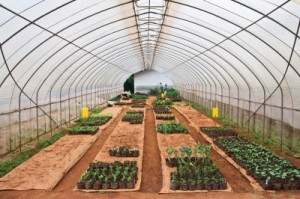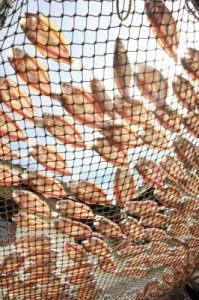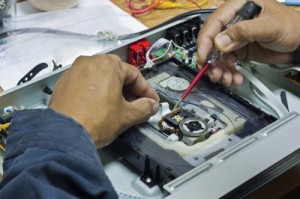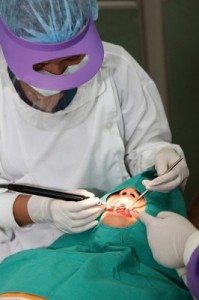 Once Relegated as the choice of study for the bravest and the brainiest, the science stream today has broadened its scope beyond engineering and medicine, offering new and exciting subjects which reflect the depth and reach of scientific progress in the 21st century
Once Relegated as the choice of study for the bravest and the brainiest, the science stream today has broadened its scope beyond engineering and medicine, offering new and exciting subjects which reflect the depth and reach of scientific progress in the 21st century
BACHELOR OF ENGINEERING (BE)
BACHELOR OF TECHNOLOGY (BTech)
BACHELOR OF APPLIED SCIENCES (BAS)
BACHELOR OF FISHERY SCIENCES (BFS/BFSc)
BACHELOR OF INFORMATION SYSTEMS MANAGEMENT (BISM)
BACHELOR OF COMPUTER APPLICATIONS (BCA)
BACHELOR OF COMPUTER SCIENCE (BCS)
BACHELOR OF ELECTRONIC SCIENCE (BES)
BACHELOR OF SCIENCE (BSc)
BACHELOR OF MEDICINE BACHELOR OF SURGERY (MBBS)
BACHELOR OF DENTAL SURGERY (BDS)
BACHELOR OF AUDIOLOGY AND SPEECH LANGUAGE PATHOLOGY (BASLP)
BACHELOR OF AYURVEDA, MEDICINE AND SURGERY (BAMS)
BACHELOR OF HOMOEOPATHIC MEDICINE AND SURGERY (BHMS)
BACHELOR OF MEDICAL LABORATORY TECHNOLOGY (BMLT)
BACHELOR OF MEDICAL RECORD SCIENCE (BMRSc)
BACHELOR OF NATUROPATHY AND YOGIC SCIENCES (BNYSc)
BACHELOR OF OCCUPATIONAL THERAPY (BOT/BOTh)
BACHELOR OF OPTOMETRY AND VISION SCIENCE (BOptom)
BACHELOR OF PHYSIOTHERAPY (BPT)
BACHELOR OF PHARMACY (BPharma)
BACHELOR OF SIDDHA MEDICAL SCIENCES (BSMS)
BACHELOR OF UNANI MEDICINE & SURGERY (BUMS)
BACHELOR OF VETERINARY SCIENCE (BVSc)
BACHELOR OF ENGINEERING (BE)/ BACHELOR OF TECHNOLOGY (BTech)
One of the most popular courses to study in India, a BE is a hardcore engineering degree which is taught in India as a professional course that prepares students to apply their studies after graduation in a professional environment. BTech is a similar degree where students are offered the same subjects as in a BE; the only difference between the two is that a BTech has more practical coursework. There are multiple specialisations available in both which students typically pick before starting the degree.
DURATION : 4 years
SPECIFIC ELIGIBILITY: Students may apply for BE and BTech not just after their 10+2 in Science but also after 10+3 where the three years are spent obtaining a diploma in an engineering or science subject.
TOP INSTITUTES: The IITs, state specific NITs, Amity University of Engineering and Technology (Bijwasan, Haryana), Jamia Milia Islamia (New Delhi), Manipal Institute of Technology (Karnataka)
CAREER STEPS: While a BE/BTech are sufficient to secure a job, most students opt for higher education either in the form of an MTech, MSc or even an MBA. While an MTech or MSc is typically for those who would like to further their knowledge in the subject for perhaps a career in research or academia, an MBA is for those who would like to develop workplace skills.
SPECIALISATIONS
ACOUSTIC ENGINEERING
Also known as Audio Engineering, it is the study of recording and reproducing sound through either electrical or mechanical means. An aspect of it also deals with sound-proofing buildings and rooms and producing sound-absorbing materials.
 AERONAUTICAL ENGINEERING
AERONAUTICAL ENGINEERING
Being the study of flight, this major concentrates on the study and design of aircrafts, spaceships/shuttles and missiles. It is a popular choice with those who wish to work in space research and aviation.
 AGRICULTURAL ENGINEERING
AGRICULTURAL ENGINEERING
Agricultural engineers design agricultural tools, implements and equipment. Their work also extends to irrigation and other land projects which aim to improve efficiency of the agricultural process.
AUTOMOBILES ENGINEERING
Students here study the technology that builds and drives automobiles and other vehicles. They also study design and production.
BIOMEDICAL/MEDICAL ENGINEERING
A discipline that combines technical knowledge with the study of the human body, it prepares students to develop and create equipment for medical diagnosis and drug delivery.
CHEMICAL ENGINEERING
This is an advanced study of Chemistry, Physics and Maths with a view to producing various chemicals for a variety of industrial uses and applications.
CIVIL ENGINEERING
This deals largely with construction of buildings, bridges, roads, highways, flyovers and structures like airports, train stations, hospitals, etc.
COMPUTER SCIENCE/SOFTWARE ENGINEERING/INFORMATION TECHNOLOGY
As the name suggests, it is the comprehensive study of computers from an engineering angle of both hardware and software. It also touches upon related subjects like robotics, artificial intelligence and industrial computation.
DAIRY TECHNOLOGY
As one of the largest milk producing and consuming nations, it is imperative that there are skilled people in India who can handle everything concerned with milk, from production to consumption. This major covers milk processing, packaging, storage, transport and physical distribution.
ELECTRICAL ENGINEERING
This deals with developing, producing and testing electrical and electronic machines like generators and motors. Students also study power production and power distribution systems and networks.
ELECTRONICS AND TELECOMMUNICATION
In this major the student studies the nitty-gritties of production of all kinds of electronic devices like computers, medical electronic equipment, consumer electronics, etc in combination with telecommunication technology.
ENVIRONMENT ENGINEERING
This discipline looks at all methods of conserving the environment, from preventing pollution to devising environment-friendly industrial processes. Students learn to develop technologies necessary for public health, waste management and sustainable processes.
FIRE TECH & SAFETY ENGINEERING
A relatively new specialisation, it is for students who would like to devise fire safety solutions both in the form of developing fire-resistant materials and creating measures that prevent fires.
GEOTECHNICAL ENGINEERING
Closely related to civil engineering, it is the study of the engineering behaviour and scope of naturally found materials and minerals in the earth. It finds the most application in construction, but is also necessary in mining works.
INSTRUMENTATION ENGINEERING
This branch explores the measurement, production, design and control of processes in industrial machines and equipment to better streamline processes and outputs.
MECHANICAL ENGINEERING
This discipline is concerned with the production, transmission and use of mechanical power through the design, operation and testing of various types of machines used in several sectors like automobile, chemical, steel plants, petroleum plants, etc.
NUCLEAR ENGINEERING
This is the study of nuclear energy and the technolgoes that produce and harness it for a variety of uses.
POLYMER ENGINEERING
This specialisation deals with the production of polymers, the processes involved and the industrial applications of polymers.
PETROLEUM ENGINEERING
This engineering branch is concerned with the production, storage and transportation of petroleum and natural gas and the technology involved in these processes.
PRODUCTION/INDUSTRIAL ENGINEERING
This is the study of how engineering techniques may be applied in the production and manufacturing of various goods as well as the mathematical models that enhance the flow of work.
PRINTING ENGINEERING
Here the student learns various printing technologies as well as the techniques necessary to build and develop new technologies. It draws from various disciplines like fluid mechanics, paper and ink technology and digital imaging.
METALLURGICAL ENGINEERING
This branch is the study of metallic and non-metallic materials, their properties, uses, production and application. Students understand how to refine ores to a pure state (extractive metallurgy) and convert refined material into usable finished products (physical metallurgy).
MARINE ENGINEERING/NAVAL ARCHITECTURE
While they may seem like two separate disciplines, they are in fact cognate. Marine engineering is the production and maintenance of marine machinery and equipment used in commercial ships and naval bases. Naval architecture is the study of the design and construction of ships and other marine vehicles which draws upon the principles of marine engineering.
MINING ENGINEERING
This major is the study of the scientific and engineering applications and technologies involved in the extraction of minerals from the earth’s crust. This is the study of mining whereas metallurgical engineering is the study of refining the materials obtained from mining.
SYSTEMS ENGINEERING
This is a branch of engineering that is concerned with the design and development of large and complex systems, not unlike software engineering, but its scope extends to beyond computers, like ballistic missiles systems.
OCEAN ENGINEERING
A cousin of marine engineering, ocean engineering deals with the design and installation of equipment within oceans that are necessary in certain industries and processes like extraction of petroleum, oil and natural gas.
TEXTILE ENGINEERING
This is the study of machinery, techniques and processes involved in the creation and production of textiles made from both natural and synthetic fibres.
 BACHELOR OF APPLIED SCIENCES (BAS)
BACHELOR OF APPLIED SCIENCES (BAS)
As opposed to a pure science degree, a BAS is structured to impart practical knowledge of a science and not just its purely theoretical concepts. It deals with the application of knowledge and skills in the real world and is an unconventional approach to science study which has for the most part been confined to textbooks and academic papers. You can major in Electronics, Food Technology or Instrumentation.
DURATION: 3 years
TOP INSTITUTES: Bhaskacharya College of Applied Sciences (New Delhi), Shaheed Rajguru College of Applied Sciences for Women (New Delhi), University of Delhi, Home Science College and Research Institute (Madurai)
CAREER STEPS: You can either get a job right after graduation in the field of your choice or if you want to study further, you can either do a master’s degree in the same or closely related subject (e.g. a Master of Computer Applications – MCA – after BAS Electronics) or you can switch to an MBA.
 BACHELOR OF FISHERY SCIENCES (BFS/BFSc)
BACHELOR OF FISHERY SCIENCES (BFS/BFSc)
Fishing has long been considered a science and this degree validates that. The fisheries industry is a booming sector and the course aims to prepare students to enter this field fully-equipped. The course encapsulates catching, managing, processing, conserving and marketing fish. It is an interdisciplinary degree as it includes the study of biology, ecology, oceanography, management and economics.
DURATION: 4 years
TOP INSTITUTES: Osmania University (Hyderabad), University of Delhi, West Bengal University of Animal Fishery (Kolkata)
CAREER STEPS: Either continue your education with a Master’s degree in Fishery Sciences(MFSc) or start working. A BFSc degree allows one to work either as a research assistant, biologist, biochemist or technician. More specific job roles are farm manager, fisheries inspector, aqua culturist, hatchery manager, fish trader and feed mill manager, among many more.
 BACHELOR OF INFORMATION SYSTEMS MANAGEMENT (BISM)
BACHELOR OF INFORMATION SYSTEMS MANAGEMENT (BISM)
As the world turns more and more digital, there is a growing need for professionals who can make sense of the large network of information exchanged in the digital space. Information systems are systems that collect, process, store and distribute information that people use. This information may be about people, places, things, or even events. This degree covers not just the technical aspects of information systems, but also how they should be managed and the human issues involved in the development and use of information systems in an organisation.
DURATION: 3 years
TOP INSTITUTES: Sriram College of Arts and Science (Tiruvallur, Tamil Nadu), University of Madras (Chennai)
CAREER STEPS: You can start your career as an information systems technician and then become a specialist where you will design and advise the best systems for companies. Or you can study for a master’s degree and specialise in a particular field like securities or database management.
 BACHELOR OF COMPUTER SCIENCE (BCS)
BACHELOR OF COMPUTER SCIENCE (BCS)
A BCS is job-oriented course aimed towards making a student completely computer literate. Unlike a BCA, its focus is on hardware in addition to software, and their design, development and implementation. Also covered are the basic concepts of computer networks, data communication, data base systems, etc.
DURATION:3 years
SPECIFIC ELIGIBILITY: Students may apply for this not just after their 10+2 in Science but also after 10+3 where the three years are spent obtaining a diploma in an engineering or science subject.
TOP INSTITUTES: Maharashtra Institute of Information Technology (Beed), Yashwantrao Chavan Institute of Science (Satara, Maharashtra)
CAREER STEPS: IT jobs in either hardware or software are options. Students who wish to study further can do a variety of diploma courses in other computer sectors like animation, networking, web development, etc. MSc Computer Science/IT, Master of Computer Management (MCM) and MBA are also possible.
 BACHELOR OF COMPUTER APPLICATIONS (BCA)
BACHELOR OF COMPUTER APPLICATIONS (BCA)
While not an engineering degree, a BCA is a more practical look at computer science and its application in the real world. It is the application of computer science principles to solve problems that may rise between the interfaces of business and technology. It is a hands-on training in software development and programming but is not as theoretical or extensive as an engineering degree. It also looks at the relevance of artificial intelligence, operating systems, graphics and software engineering.
DURATION: 3 years
TOP INSTITUTES: Christ College (Bangalore), Garden City College (Bangalore), Pune University
CAREER STEPS: Students usually go on to do a master’s degree to build on their BCA basics. Options are an MCA and MSc in Computer Science. Some even proceed to an MPhil or a PhD in Computer Science. MBA is another popular option. Graduates could also go for jobs in the IT sector, but many employers are increasingly looking for postgraduates.
 BACHELOR OF ELECTRONIC SCIENCE (BES)
BACHELOR OF ELECTRONIC SCIENCE (BES)
A study of the science of electronics, the objective of the BES degree is to develop academic, social and technical skills necessary for technical jobs. It is similar to the BSc in Electronic Science, but has more practical topics than the BSc.
DURATION: 3 years
TOP INSTITUTES: Jaya College of Arts and Science (Chennai), Mohamed Sathak College of Arts and Science (Chennai), Academy of Technocrats, Berhampur University (Orissa)
CAREER STEPS: Either proceed to a master’s degree (MSc Electronics or MBA) or start working as an electronics goods technician.
BACHELOR OF SCIENCE (BSc)
With rapid development in science and technology, a BSc is no longer a substitute course for those who cannot get into engineering or medical colleges. BSc has become a focused degree that offers a plethora of both traditional and unconventional science subjects to major in. It has become the stepping stone to a more advanced degree and is the choice of course for aspirant researchers and academicians.
DURATION: 3 years
TOP INSTITUTES: The IITs, St. Xavier’s College (Mumbai), Loyola College (Chennai), St Stephen’s College (New Delhi), Presidency College (Kolkata)
CAREER STEPS: Jobs are available in both science and non-science fields. Apart from doing research and working government jobs, science graduates also work in business, marketing and technical writing. Nowadays, banks hire science graduates to serve as customer service executives. Since this degree throws up many options, higher studies is also not just restricted to an MSc, but includes MA and MBA.
SPECIALISATIONS
AGRICULTURE
This is a 4-year course that covers agronomy, horticulture, plant pathology, entomology, agricultural economics, genetics and plant breeding, soil science, food technology, animal husbandry, and the basics of humanities and agricultural engineering. The degree places emphasis on hands-on experience and learning by doing with a compulsory semester-long internship in rural agriculture.
AQUACULTURE
Aquaculture is an applied science that studies marine life with a holistic approach. It’s not just about fish and other aquatic creatures; this major also studies plant life underwater with a view to increasing underwater living standards and food security.
BIOTECHNOLOGY
Technology is combined with biology for developing useful products for agriculture, food production and medicine. Includes the study of engineering, genetics, biochemistry, microbiology and chemistry.
BIOCHEMISTRY
This major studies the chemistry within humans and other living organisms. The course structure combines principles of chemistry with those of biology and zoology.
BIOLOGY/BIOMEDICAL SCIENCE/LIFE SCIENCES
Here technology is combined with biology for the purpose of research and development. Allied subjects such as engineering, genetics, biochemistry, microbiology and chemistry are studied.
BIOINFORMATICS
A synthesis of IT with biology, this field uses computer technology to manage and study biological data. This finds application in drug design.
BOTANY
This is a specialised major that studies only plant life extensively. Also included are the study of fungi and algae, botanical diseases, and plant growth, metabolism and structure.
COMPUTER SCIENCE/IT
This is the study of computers and the theories involved in building and developing computing technology. BSc IT is more practical in its approach and deals with the application of computer science, while BSc Computer Science is all about understanding just the science behind computers.
ELECTRONIC SCIENCE
This branch of science is a specialised one, concerned with just the study of electronics and its applications in the real world. There is heavy emphasis on theory and the course includes the study of maths, statistics and the basics of programming and computation.
ENVIRONMENTAL SCIENCE
This is an in-depth study of the chemical, biological and physical aspects of the environment. It combines social science principles to address issues of conservation and prevention.
FORESTRY
As India’s green cover is deteriorating at an alarming rate, this course fills the lacuna of a science degree that assesses the importance of open spaces and forests, studies tree and plant life in detail and looks at the conservation issues at hand.
CHEMISTRY
A pure science specialisation, a student would study all the branches of chemistry: physical, analytical, inorganic and organic. The thrust of this course is on theoretical concepts but also touches briefly upon cognate subjects like biomolecular science.
BUSINESS COMPUTING AND INFORMATION SYSTEMS
This specialisation combines fundamental computing principles with the design and development of computer systems for commercial and industrial purposes. Also included in the coursework are IT management, project management and security issues.
APPLIED PHYSICAL SCIENCE
This branch is the study of the applications of a physical science subject of the student’s choice – computer science, environmental science, or even a pure science subject from physics, chemistry, biology and maths.
MATHS/MATHS AND STATISTICS/STATISTICS
A BSc in maths is dedicated entirely to mathematics which may be combined with statistics. Quantity, structure and space – all three are studied extensively using mathematical models.
NURSING
This is a focused field of study for aspiring nurses and is 4 years long. Apart from covering the basics of biology, nutrition, health and physiology, the course draws on social sciences to impart to students the science of caring of individuals and families.
MEDICAL TECHNOLOGY
In modern medicine, most medical care is performed with the assistance of special technology. Students learn to operate and use a variety of medical machines across all medical faculties in order to assist doctors. This is different from Medical Laboratory Technology in that it is not just restricted to lab equipment and procedures.
MEDICAL LABORATORY TECHNOLOGY
This 4-year course aims to equip students with the knowledge and skills necessary to perform specialised laboratory procedures in concert with the medical technology available today. Students study the basics of medicine before delving into the clinical aspects of lab procedures.
MICROBIOLOGY
This is a division of biology where students study only microorganisms – protozoa, algae, bacteria and fungi. Their study also includes mycology, bacteriology and virology.
NANOTECHNOLOGY
A new and exciting branch of science, nanotechnology is the study of matter and its manipulation in an atomic and molecular scale. It involves developing devices and materials that can deal with structures that are atomic or molecular in size.
NATURAL SCIENCES
This is a holistic, multidisciplinary course that incorporates biology, chemistry, earth science, oceanography and physics for the purposes of understanding the state of the natural world and how each subject relates to the other in nature.
NUTRITION, DIETETICS & FOOD TECHNOLOGY
Food, nourishment and health go hand-in-hand in this specialisation. Students study to become either clinical nutritionists or clinical dieticians for health management and prevention of diseases.
PHYSICS
While this specialisation is essentially the study of all aspects of physics, the course also includes the study of allied subjects like mechanics, electronics, maths and even technical writing.
PHYSIOTHERAPY
This is a health care specialisation which is focused on the remedies of impairments and disabilities in the human body by improving movement function. Students learn how to assess, restore and maintain the physical functions and performance of the body.
ZOOLOGY
Briefly put, this is the study of animals, their structure, environment and habitat. Students are taught ichthyology (study of fish), ornithology (study of birds) and mammology (study of mammals).
 BACHELOR OF MEDICINE BACHELOR OF SURGERY (MBBS)
BACHELOR OF MEDICINE BACHELOR OF SURGERY (MBBS)
The degree that all aspiring doctors would like to have against their name, getting a place in an MBBS college is one of the hardest achievements for Indian students. It is also one of the most difficult courses to pass as it combines the study of several subjects – biology, chemistry, pharmacology, microbiology, pathology, etc. Students must also study humanities as part of the course to better understand the finer aspects of patient care.
DURATION: 4½ years + 1 year compulsory residential internship
TOP INSTITUTES: AIIMS (New Delhi), Christian Medical College (Vellore, Tamil Nadu), KEM Hospital (Mumbai), Armed Forces Medical College (Pune), Grant Medical College (Mumbai)
CAREER STEPS: An MBBS allows a graduate to start working as a general medicine doctor immediately, but many opt to become specialists and thus study further. An MD (Doctor of Medicine) in a specific medical field (cardiology, oncology, ophthalmology, etc.) is a necessary qualification to become a specialised doctor. An MS (Master of Surgery) is required for becoming a specialised surgeon. Research is an integral part of higher studies and many students become professors of medicine after their education.
 BACHELOR OF AUDIOLOGY AND SPEECH LANGUAGE PATHOLOGY (BASLP)
BACHELOR OF AUDIOLOGY AND SPEECH LANGUAGE PATHOLOGY (BASLP)
A highly specialised course, BASLP is a new and intensive degree dedicated to the science of speech and hearing. This course is designed to gain a better understanding of speech and hearing disorders so that they may be addressed adequately. Students are taught to properly assess, guide and provide therapeutic and facilitative measures to those with the disorders. Some colleges make it mandatory for students to intern for a year to work with patients suffering from speech and hearing illnesses.
DURATION: 4 years
TOP INSTITUTES: Manipal College of Allied Health Sciences, Manipal University (Karnataka), Dr M.V. Shetty College of Speech and Hearing (Mangalore), Pt. JNM Speech & Audiology Centre (Raipur)
CAREER STEPS: Graduates can become counsellors, assisting established speech and audio counsellors. They can also work as a health care worker for voice care and phono surgery, cochlear implant programmes, laryngectemy clinics, hearing aid dispensing centres and aphasia rehabilitation centres. There is also a master’s degree in this subject but is offered in India by Manipal University only.
 BACHELOR OF DENTAL SURGERY (BDS)
BACHELOR OF DENTAL SURGERY (BDS)
This is the degree to study to become a dentist. As the name suggests, this course teaches both principles of dental science and various dental surgical procedures. Some of the subjects in the degree are dental anatomy, oral histology, oral pathology, community dentistry, paedodontics, oral medicine and radiology.
DURATION: 4 years + 1 year compulsory internship
TOP INSTITUTES: Manipal College of Dental Sciences (Karnataka), Maulana Azad Institute of Dental Sciences (New Delhi), Government Dental College and Hospital (Mumbai), S.D.M. College of Dental Sciences and Hospital (Dharwad)
CAREER STEPS: Like other medical degrees, this too allows graduates to start practising as dentists. Those who wish to specialise within dentistry can study further for an MDS (Master of Dental Surgery) which is three years long. This is a lucrative profession in India.
BACHELOR OF AYURVEDA, MEDICINE AND SURGERY (BAMS)
Mainstream medicine may not accept the veracity of alternative medicine, but that hasn’t stopped the spiralling popularity of Ayurveda. This degree finds a balance between traditional Ayurvedic practices and modern medicine and the integrated curriculum thus has Ayurvedic principles taught in tandem with modern physiology and surgery concepts.
DURATION: 4½ years + 1 year compulsory residential internship
TOP INSTITUTES: Ayurveda and Unani Tibbia College (New Delhi), Banaras Hindu University (Varanasi), the Government Ayurveda Colleges (Kerala)
CAREER STEPS: BAMS graduates can become practicing doctors of not just Ayurvedic medicine, but also allopathic medicine. There are also jobs in research, teaching, healthcare and hospital administration, and health supervision. For further studies, there is the MD Ayurveda degree, but graduates can also opt for an MBA in hospital/healthcare management or an MSc in any health science.
BACHELOR OF HOMOEOPATHIC MEDICINE AND SURGERY (BHMS)
Another stream of alternative medicine, this degree trains students to become practising doctors of homoeopathy. The basic tenet of this stream is ‘like cures like’ i.e. substances that cause certain symptoms in a healthy person can also cure those same symptoms in someone who is sick. The emphasis is on the human immune system and personalised treatment for each patient. In many instances, homoeopathy finds answers where allopathy can’t. This degree allows students to specialise in one aspect of homoeopathic practice.
DURATION: 4½ years + 1 year compulsory internship
TOP INSTITUTES: Government Homeopathic Medical College (Calicut), A.M. Shaikh Homoeopathic Medical College (Belgaum), Government Homoeopathic Medical College (Trivandrum), DKMM Homoeopathic Medical College (Aurangabad)
CAREER STEPS: You can start working as a homoeopathic doctor, which is in great demand today as people are discovering the benefits of alternative medicine. If you would like to study further, the higher degree is an MD in homoeopathy.
BACHELOR OF MEDICAL LABORATORY TECHNOLOGY (BMLT)
This degree aims to provide students with adequate knowledge to carry out routine and sophisticated laboratory diagnostic procedures in tandem with the new medical technology available today. The course also focuses on advances in management of laboratories, instrumentation, and other principles of laboratory exercises.
DURATION: 3 years
TOP INSTITUTES: University College of Medical Sciences and GTB Hospital (New Delhi), Sathyabama University (Chennai), MGM University of Health Sciences (Navi Mumbai)
CAREER STEPS: On completion of this degree, there are options of becoming a medical lab technologist and medical microbiologist who can work in nursing homes and health institutes. You could also start your own clinical laboratory.
BACHELOR OF MEDICAL RECORD SCIENCE (BMRSc)
This degree helps students fully understand and acquire knowledge such that they will be competent at a job that involves record management, hospital needs, electronic handling of medical records, storage archival, decision support systems and other criteria.
DURATION: 3 years
TOP INSTITUTES: SRM University (Kattankulathur, Tamil Nadu), Dr M.G.R. Medical University (Chennai), Sikkim Manipal University (Gangtok)
CAREER STEPS: After completing this course, it will be possible for you to work in medical records departments which help in the planning and management of hospitals, government policies and community care.
BACHELOR OF NATUROPATHY AND YOGIC SCIENCES (BNYSc)
Covering a range of subjects from anatomy and acupuncture to magneto therapy and yoga philosophy, this course provides an in-depth study in natural healing and whole-person medicine.
DURATION: 4½ years + 1 year compulsory internship
TOP INSTITUTES: Dr M.G.R. Medical University (Chennai), Dr N.T.R. University of Health Sciences (Vijaywada)
CAREER STEPS: You can work as a naturopathic doctor after completing this course.
BACHELOR OF OCCUPATIONAL THERAPY (BOT/BOTh)
Occupational therapy involves coaching physically handicapped people to become self-independent with day-to-day activities. After completing the course, it is possible to get work in hospitals, private clinics, rehabilitation centres and NGOs.
DURATION: 3 years + 6 months compulsory internship
TOP INSTITUTES: Pt. Deen Dayal Institute for Physically Handicapped (New Delhi), K.M.C.H. College of Occupational Therapy (Coimbatore), Sir D.B. Orthopaedic Centre (Mumbai)
CAREER STEPS: On completing this degree, it will be possible to work as an occupational therapist or a supervisor in different centres on full-time or part-time basis.
BACHELOR OF OPTOMETRY AND VISION SCIENCE (BOptom)
The course provides students with an understanding of physical and life sciences and their relation to the visual system. It also focuses on the study of visual mechanisms like eye coordination, focus and colour and form perception.
DURATION: 4 years
TOP INSTITUTES: Vinayaka Missions University (Salem), Vidyasagar College of Optometry and Vision Science (Kolkata), Paramedical College (Durgapur)
CAREER STEPS: This course will allow you to be a primary care provider in the field of eye care where you will manage and treat eye-related ailments in the form of checking eyesight and providing corrective measures like spectacles and contact lenses.
BACHELOR OF PHYSIOTHERAPY (BPT)
This course teaches students the skills required in physiotherapy to cure weaknesses and rebuild damaged muscles, joints and bones using physical exercise therapy. There is a huge scope in this field as there are only a handful of professionals across the country and plenty of demand for trained physiotherapists.
DURATION: 4½ years
TOP INSTITUTES: Chennai Medical College, PDS Institute of Physiotherapy (Hyderabad), Jamia Millia Islamia University (New Delhi), Padmashree Dr D.Y. Patil Vidyapeeth (Navi Mumbai)
CAREER STEPS: After completing this course, you can find employment in rehabilitation and orthopaedic departments of hospitals. It is also possible to have a career in private practice.
BACHELOR OF PHARMACY (BPHARMA)
In this course, students learn a great deal about the pharmaceutical industry. In particular, they are given knowledge about the development, production and marketing of drugs and medicines.
DURATION: 4 years
TOP INSTITUTES: Sri Ramachandra University College of Pharmacy (Chennai), Birla Institute of Technology & Science (Pilani), K.M. College of Pharmacy (Madurai)
CAREER STEPS: Completion of this course can open up a career in hospital pharmacy. Other career options include pharmaceutical consulting, industrial pharmacy, medical publishing or research and development in the pharmaceutical industry. The next stage of study, MPharma, is a taught course. The research-based course is MPharma (Clinical).
BACHELOR OF SIDDHA MEDICAL SCIENCES (BSMS)
Siddha medicine is one of the oldest forms of medicine in India which originated in Tamil Nadu. The course teaches students to treat ailments with a focus on both body and mind by using methods which are reasonably priced, easily available and non-toxic.
DURATION: 4½ years + 1 year internship
TOP INSTITUTES: Government Siddha Medical College (Chennai), Govt. Siddha Medical College (Tirunelveli), Akila Thiruvithamcore Siddha Vaidya Sangam (Kanyakumari), Velumailu Siddha Medical College (Sriperumbudur)
CAREER STEPS: You can work in Siddha hospitals and clinics as a junior doctor or assistant medical officer. You could even open your own Siddha medicine retail store or join the faculty of Siddha educational institutes.
BACHELOR OF UNANI MEDICINE & SURGERY (BUMS)”
This course teaches students to cure ailments through the methods of Unani medicine. Unani medicine focuses on curing the disease according to its diagnosis and thus the course is developed to teach students these ideologies.
DURATION: 4½ years + 1 year internship
TOP INSTITUTES: Government Unani Medical College (Chennai), National Institute of Unani Medicine (Bangalore),
CAREER STEPS: Having completed the course, you can practice as a junior doctor or junior surgeon. You could even practice privately or join a Unani pharmaceutical company.
BACHELOR OF VETERINARY SCIENCE (BVSC)
This course teaches and qualifies you to deal with medicinal, diagnostic and therapeutical principles which are related to various animals. The course provides a practical and theoretical training so as to provide students an all round understanding which is required for the welfare of animal health.
DURATION: 4½ years + 6 months internship
TOP INSTITUTES: Indian Veterinary Research Institute (Izatnagar, Uttar Pradesh), College of Veterinary and Animal Science (Mannuthy, Kerala), Bombay Veterinary College (Mumbai), Chandra Shekhar Azad University of Agriculture & Technology (Kanpur)
CAREER STEPS: You can practice as a veterinarian after completing this course. If you wish to study further, there is a master’s course in veterinary science.
Volume 2 Issue 7
BACHELOR OF VETERINARY SCIENCE (BVSC)



























